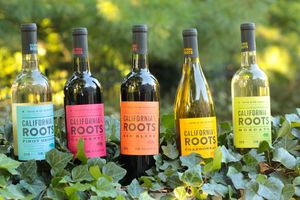Duckhorn Cabernet: A Rich and Bold Wine Experience
Duckhorn Cabernet is a type of wine that has gained popularity among wine enthusiasts over the years. It is produced by Duckhorn Vineyards, a winery located in the heart of Napa Valley, California. The winery has been crafting distinctive Bordeaux wine varietals including Merlot, Cabernet Sauvignon, and Sauvignon Blanc for over 40 years.
Duckhorn Cabernet is a rich and complex wine that is made from 100% Cabernet Sauvignon grapes. The wine is aged in French oak barrels for up to 18 months, which gives it a smooth and velvety texture. Duckhorn Vineyards offers a range of Cabernet Sauvignon wines from different Napa Valley vineyards, with prices ranging from $56 to $252 per bottle. You can also buy 375ml or 1.5L magnum bottles online or visit the winery in St. Helena.
Duckhorn Cabernet has received numerous awards and accolades over the years, making it one of the most sought-after wines in the world. It is known for its bold flavors of dark fruit, chocolate, and vanilla, as well as its long and satisfying finish. Whether you are a seasoned wine connoisseur or just starting out, Duckhorn Cabernet is a wine that is sure to impress.
History of Duckhorn Vineyards
Founding and Evolution
Duckhorn Vineyards was founded in 1976 by Dan and Margaret Duckhorn in St. Helena, Napa Valley. It was one of the first wineries in Napa Valley to focus on Merlot and helped to establish the varietal as a premium wine in the United States. The winery's first vintage was released in 1978 and was a single-vineyard Merlot from the Three Palms Vineyard in Calistoga.
Over the years, Duckhorn Vineyards expanded its portfolio to include Cabernet Sauvignon, Sauvignon Blanc, Chardonnay, and Pinot Noir. The winery's flagship wine, Duckhorn Vineyards Napa Valley Cabernet Sauvignon, is a blend of Cabernet Sauvignon, Merlot, Cabernet Franc, and Petit Verdot.
Judgement of Paris Impact
Duckhorn Vineyards gained international recognition in 1976 when a panel of French judges rated their 1973 Cabernet Sauvignon above some of the best Bordeaux wines in the world in a blind tasting known as the Judgement of Paris. This event helped to put Napa Valley on the map as a world-class wine region and helped to establish Duckhorn Vineyards as a leader in the production of premium Napa Valley Cabernet Sauvignon.
Today, Duckhorn Vineyards is recognized as one of the premier producers of Napa Valley wines and has received numerous accolades and awards from publications such as Wine Spectator. The winery's commitment to quality and innovation continues to be a driving force behind its success.
Understanding Cabernet Sauvignon
Cabernet Sauvignon is one of the most widely planted grape varieties in the world. It is a red grape that is grown in many wine regions globally, including California, Bordeaux, and Australia. Cabernet Sauvignon is known for its full-bodied and complex flavor profile, making it a favorite among wine enthusiasts.
Grape Characteristics
Cabernet Sauvignon grapes are small, thick-skinned, and dark in color. They have a high ratio of skin to pulp, which is responsible for the wine's deep color and tannin structure. The grape is also known for its high sugar content, which results in high alcohol levels in the finished wine.
Tannins and Acidity
Cabernet Sauvignon is known for its high tannin content, which gives the wine its structure and aging potential. Tannins are a natural component of grape skins, seeds, and stems, and they provide a dry, astringent sensation in the mouth. Cabernet Sauvignon also has high acidity, which helps to balance the wine's rich fruit flavors and provides a refreshing finish.
When young, Cabernet Sauvignon wines can be quite tannic and acidic, with flavors of black currant, black cherry, and blackberry. As the wine ages, these flavors can evolve into more complex notes of leather, tobacco, and cedar.
Overall, Cabernet Sauvignon is a popular wine that is known for its full-bodied flavor profile and aging potential. Its high tannin and acidity levels make it a great pairing for rich, fatty foods, such as steak and lamb.
Duckhorn's Winemaking Philosophy
Duckhorn Vineyards is a brand that has become synonymous with quality and excellence in the world of wine. Their winemaking philosophy is based on a deep respect for the fruit and a commitment to crafting wines that are balanced, elegant, and complex.
Estate Vineyards
At Duckhorn Vineyards, the winemaking process begins in the vineyard. The estate vineyards are located in some of the most prestigious appellations in Napa Valley, including St. Helena, Rutherford, and Calistoga. The vineyards are meticulously farmed to ensure that the fruit is of the highest quality.
Blending Techniques
Blending fruit is an art form at Duckhorn Vineyards. The winemakers carefully select fruit from each vineyard block to create a blend that is greater than the sum of its parts. The goal is to create a wine that is balanced, complex, and expressive.
Oak Aging Process
Duckhorn Vineyards is known for their use of French oak in the aging process. The winemakers carefully select the barrels to ensure that the oak complements the fruit without overpowering it. The oak aging process adds complexity and depth to the wine, creating a wine that is both elegant and age-worthy.
In conclusion, Duckhorn Vineyards' winemaking philosophy is based on a deep respect for the fruit, a commitment to crafting wines that are balanced, elegant, and complex, and a dedication to the art of blending and oak aging.
Napa Valley Terroir
Napa Valley is a world-renowned wine region in California, famous for producing some of the finest Cabernet Sauvignon wines in the world. The region's terroir, which includes its unique climate, soil composition, and sub-AVAs, plays a crucial role in the production of these wines.
Climate Influence
Napa Valley's climate is Mediterranean, characterized by warm, dry summers and cool, wet winters. The region's location between the Pacific Ocean and the Coastal Range provides a unique microclimate that is ideal for growing Cabernet Sauvignon grapes. The cooling influence of the ocean breezes and fog helps to regulate the temperature, allowing the grapes to ripen slowly and develop complex flavors.
Soil Composition
The soil composition of Napa Valley is diverse, with each sub-AVA having its own unique characteristics. The Rutherford AVA, for example, is known for its gravelly loam soil, which is rich in minerals and provides excellent drainage. The Stags Leap District AVA, on the other hand, has volcanic soils that are rich in iron and magnesium, giving the wines a distinctive flavor profile.
Sub-AVAs of Napa
Napa Valley is home to 16 sub-AVAs, each with its own unique terroir. These sub-AVAs are defined by their geography, soil composition, and climate, and they play a significant role in the production of Napa Valley Cabernet Sauvignon wines. Some of the most famous sub-AVAs include Rutherford, Stags Leap District, and Oakville.
In conclusion, Napa Valley's terroir is a critical factor in the production of world-class Cabernet Sauvignon wines. The region's unique climate, soil composition, and sub-AVAs all contribute to the complex flavors and aromas of these wines.
The Signature Duckhorn Cabernet
Duckhorn Vineyards is renowned for its exceptional Cabernet Sauvignon, which is produced from the finest vineyards in Napa Valley. The signature Duckhorn Cabernet is a blend of grapes sourced from some of the most prestigious vineyards in the region.
Vineyard Sources
The grapes for the signature Duckhorn Cabernet come from a variety of vineyards, including the Three Palms Vineyard in Calistoga, which has been a cornerstone of the blend for over 40 years. The vineyard is known for its unique soil composition and microclimate, which produce grapes with exceptional depth and complexity.
Other vineyards that contribute to the signature blend include the Rector Creek Vineyard, which is located in the heart of the Napa Valley, and the Howell Mountain Vineyard, which is situated at an elevation of over 1,800 feet. Each vineyard brings its own unique character to the blend, resulting in a wine that is both complex and balanced.
Vintage Variation
Vintage variation is an important consideration when it comes to the signature Duckhorn Cabernet. Each year, the winemakers carefully select grapes that are perfectly ripe and expressive, resulting in a wine that reflects the unique characteristics of that vintage. Vintage variation can result in subtle differences in the wine's flavor profile from year to year, making each vintage a unique expression of the winemaker's art.
Tasting Profile
The signature Duckhorn Cabernet is known for its rich, full-bodied palate, which is characterized by flavors of black cherry, cassis, and dark chocolate. The wine is aged in French oak barrels, which impart subtle notes of vanilla and spice. On the nose, the wine exhibits expressive aromas of blackberry, black currant, and espresso, with hints of tobacco and leather adding nuance to the bouquet.
Overall, the signature Duckhorn Cabernet is a wine of exceptional quality and character, with a rich and complex flavor profile that is sure to please even the most discerning wine connoisseur.
Food Pairing and Serving
Ideal Food Companions
Duckhorn Cabernet Sauvignon pairs well with a variety of foods, including red meats, lamb, and game. The wine's tannins and acidity complement the richness of these meats, while its fruitiness balances their flavors. For a classic pairing, serve the wine with a medium-rare steak, seasoned with salt, pepper, and fresh herbs.
For a more adventurous pairing, try Duckhorn Cabernet Sauvignon with dark chocolate. The wine's notes of cedar and sage complement the chocolate's bitterness, creating a complex and satisfying flavor profile.
Decanting and Temperature
To fully enjoy the flavors of Duckhorn Cabernet Sauvignon, it is recommended to decant the wine for at least 30 minutes before serving. This allows the wine to breathe and opens up its aromas and flavors.
The ideal serving temperature for Duckhorn Cabernet Sauvignon is between 60-65°F (15-18°C). This temperature range brings out the wine's fruitiness and balances its tannins. If the wine is too cold, its flavors will be muted, while if it is too warm, its alcohol content will be more noticeable.
In summary, Duckhorn Cabernet Sauvignon is a versatile wine that pairs well with a variety of foods, including red meats, lamb, and game. For a unique pairing, try it with dark chocolate. To fully enjoy the wine's flavors, decant it for at least 30 minutes and serve it between 60-65°F (15-18°C).
Aging and Cellaring Potential
Duckhorn Cabernet Sauvignon is a wine that is known for its aging potential. It is a complex wine that is crafted with precision and care. The wine is known for its velvety tannins, balanced acidity, and rich fruit flavors.
Optimal Aging Period
The optimal aging period for Duckhorn Cabernet Sauvignon is between 5 and 10 years. During this time, the wine will develop more complex flavors and aromas. The tannins will soften and the acidity will become more integrated.
Cellaring Conditions
To ensure that the wine reaches its full potential, it is important to store it in the right conditions. The ideal temperature for cellaring Duckhorn Cabernet Sauvignon is between 55°F and 60°F. The humidity should be around 70%.
It is also important to store the wine in a dark place, away from direct sunlight. Light can cause the wine to age prematurely and can affect the flavor and aroma.
When storing the wine, it is important to keep the bottles lying down. This will keep the cork moist and prevent it from drying out. A dry cork can allow air into the bottle, which can cause the wine to oxidize and spoil.
In conclusion, Duckhorn Cabernet Sauvignon is a wine with great aging potential. It is important to store the wine in the right conditions to ensure that it reaches its full potential. By following the guidelines above, you can enjoy a rich and complex wine that will only get better with age.
Recognitions and Accolades
Awards and Ratings
Duckhorn Vineyards' Cabernet Sauvignon has received numerous awards and accolades over the years. The winery's 2018 Napa Valley Cabernet Sauvignon Rector Creek Vineyard was awarded 94 points by Wine Spectator, which praised its "ripe and juicy" flavors of blackberry, cherry, and plum.
In addition, the 2019 Napa Valley Cabernet Sauvignon 375ml received a rating of 92 points from James Suckling, who noted its "attractive, ripe dark berries and plums with a very succulent, juicy and attractively fresh palate."
Duckhorn Vineyards has also been recognized as one of the top Napa Valley growers, with Wine Spectator naming the winery as one of the "Top 100 Wine Growers" in 2019.
Industry Reviews
Wine Spectator has consistently praised Duckhorn Vineyards' Cabernet Sauvignon, with the publication calling the 2017 Napa Valley Cabernet Sauvignon "a rich and full-bodied wine with ripe tannins and a long finish." The 2016 Napa Valley Cabernet Sauvignon was also highly rated by Wine Spectator, which gave the wine a score of 92 points and noted its "ripe and juicy" flavors of blackberry and plum.
The winery's Cabernet Sauvignon has also been recognized in blind tastings, including the historic "Judgment of Paris" tasting in 1976. In a blind tasting of California Cabernet Sauvignon against French Bordeaux, the 1973 Duckhorn Vineyards Cabernet Sauvignon was one of the top-scoring wines, solidifying the winery's reputation as a producer of world-class Cabernet Sauvignon.
Overall, Duckhorn Vineyards' Cabernet Sauvignon has received consistent praise and recognition from industry experts and publications, solidifying its position as one of the top producers of Cabernet Sauvignon in Napa Valley.
Collecting Duckhorn Cabernets
Duckhorn Cabernet Sauvignon is a collectible red wine that has been gaining popularity among wine enthusiasts and collectors alike. The wine is known for its bold, structured flavor profile that is both approachable and age-worthy. In this section, we will explore the investment value of Duckhorn Cabernets and how to acquire rare vintages.
Investment Value
Duckhorn Cabernet Sauvignon is a wine that has proven to be a sound investment for collectors. The wine has a strong track record of increasing in value over time, and rare vintages can command high prices at auction. For example, a 3-liter bottle of Duckhorn Cabernet Sauvignon from the 1994 vintage sold for $3,000 at a charity auction in 2018.
Investors should keep in mind that the value of wine can fluctuate based on market conditions and the overall reputation of the winery. However, Duckhorn Vineyards has a history of producing high-quality wines that are well-regarded by critics and collectors alike. As such, investing in Duckhorn Cabernet Sauvignon can be a smart choice for those looking to diversify their investment portfolio.
Acquiring Rare Vintages
Acquiring rare vintages of Duckhorn Cabernet Sauvignon can be a challenge, but there are a few strategies that collectors can use to get their hands on these coveted bottles. One option is to purchase directly from the winery, as Duckhorn Vineyards releases limited quantities of older vintages each year. Another option is to attend wine auctions, where rare bottles of Duckhorn Cabernet Sauvignon are often sold.
Collectors should also keep an eye out for special releases and collaborations. For example, in 2019, Duckhorn Vineyards collaborated with Stag’s Leap Wine Cellars to produce a limited-edition Cabernet Sauvignon. This wine, which was made in honor of the 45th anniversary of the Judgment of Paris, is a rare and highly sought-after vintage that is sure to appreciate in value over time.
In conclusion, collecting Duckhorn Cabernet Sauvignon can be a rewarding and profitable endeavor for wine enthusiasts and collectors. By understanding the investment value of these wines and knowing how to acquire rare vintages, collectors can build a collection that is both impressive and valuable.
The Future of Duckhorn
Duckhorn Vineyards has been producing world-class wines for over 40 years, and they show no signs of slowing down. As the wine industry continues to evolve, Duckhorn is committed to staying ahead of the curve with their sustainability practices and innovative winemaking techniques.
Sustainability Practices
Duckhorn Vineyards is dedicated to preserving the environment for future generations. They have implemented a number of sustainable practices in their vineyards, including:
- Cover crops to prevent soil erosion and promote healthy soil
- Integrated pest management to reduce the use of pesticides
- Water conservation through drip irrigation and recycled water usage
- Renewable energy sources, including solar and wind power
These practices not only benefit the environment, but they also contribute to the complexity of the valley and the seamless balance of Duckhorn's wines.
Innovation in Winemaking
Duckhorn Vineyards is always looking for new and innovative ways to create exceptional wines. They have invested in state-of-the-art technology to improve the efficiency and quality of their winemaking process. For example, they use optical sorting machines to ensure that only the highest quality grapes are used in their wines.
Duckhorn also experiments with different winemaking techniques, such as aging their wines in concrete eggs or using wild yeast to ferment their grapes. These techniques add unique flavors and textures to their wines, making them stand out in a crowded market.
Overall, Duckhorn Vineyards is poised for a bright future. Their commitment to sustainability and innovation in winemaking ensures that they will continue to produce exceptional wines for years to come.



Member discussion